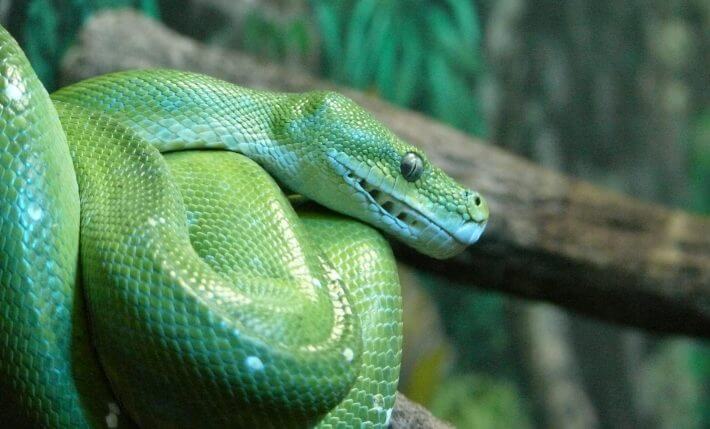🔑 Key Findings:
- Python farming appears to have several benefits over traditional livestock farming.
- Over 80% of a python’s live weight was found to be usable as food.
- Python farming was more eco-friendly than feeding normal animals used for meat.
SYDNEY, Australia — Meat alternatives are all the rage these days. While many researchers are encouraging people to find more sustainable plant-based foods to eat, a new study has some surprising dietary advice — eat more python!
An international team examining the landscapes of Thailand and Vietnam finds that there’s potential for python farming to become a sustainable and efficient alternative to traditional livestock used for meat. This research, published in the journal Scientific Reports, reveals that python farming, long established in Asia, might just be the solution which solves increasing food insecurity around the world.
The study focused on two species of large pythons, the Malayopython reticulatus and Python bivittatus, commonly known as the reticulated python and Burmese python, respectively. These reptilian giants, capable of rapid growth and impressive size, were observed in controlled farming environments in Thailand and Vietnam. Researchers measured their growth rates, food intake, and the effects of fasting, uncovering fascinating insights into the efficiency and resilience of pythons as a source of protein.
One of the study’s striking revelations is the rapid growth rate of pythons, with daily mass increases ranging from 0.24 to 42.6 grams, depending on the species and food intake. Females, in particular, grew faster than males, showcasing the potential for high production efficiency in python farming. Moreover, pythons demonstrated remarkable resilience during fasting periods, losing almost none of their body mass each day, thereby maintaining their condition even in the absence of regular feeding.

The food conversion ratio, a key metric in evaluating the efficiency of animal farming, stands at 4.1 percent for pythons. This figure surpasses that of traditional livestock, indicating that pythons convert food to body mass more effectively. Remarkably, the study found that the edible portion of a python, including the skin and meat, constitutes 82 percent of its live weight, which is a higher yield compared to many conventional farm animals.
The study finds that python farming also offers several environmental and practical advantages. These reptiles are ectothermic (cold-blooded), requiring less energy to maintain body temperature compared to endothermic (warm-blooded) animals like mammals and birds. This trait translates into lower food and resource needs, making pythons an eco-friendly option. Additionally, their ability to thrive on a diet of waste protein from other industries helps in recycling nutrients and reducing waste.
Despite these benefits, the adoption of python farming in mainstream agriculture has been slow, partly due to misconceptions about the feasibility of breeding pythons in captivity and concerns over wildlife laundering. However, this study counters these concerns, proving that captive breeding of pythons for commercial purposes is both viable and sustainable.
In light of the pressing need for sustainable food sources due to the world’s growing populations and the impacts of climate change, researchers say python farming could be a promising alternative for food production. Its low environmental footprint, high food conversion efficiency, and the potential to utilize waste materials as feed, position it as a forward-thinking solution to the challenges of modern agriculture.
“Commercial production of pythons is in its infancy, with farms receiving minimal scientific input or optimization through formal channels for agricultural development. Even in its current relatively crude format, python farming appears to offer tangible benefits for sustainability and food systems resilience,” the researchers write in Scientific Reports.
“Our study suggests that python farming can not only complement existing livestock systems, but may offer better returns in terms of production efficiencies. When compared to existing endotherm-based livestock industries, pythons are more efficient mass producers of animal protein.”
